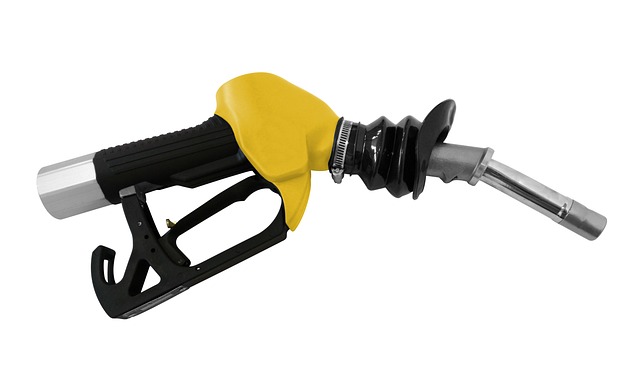Travel Sober: Communication & Boundaries for Healthy Global Connections
Setting boundaries and developing assertiveness are vital for maintaining sobriety during internatio…….
Over 15% US adults have used prescription painkillers not prescribed to them.
Traveling abroad opens doors to breathtaking destinations, cultural immersion, and unforgettable experiences. However, it also presents unique challenges, especially when it comes to maintaining sobriety. In today’s globalized world, the concept of staying sober while exploring foreign lands has gained significant importance, reflecting a broader societal shift towards responsible tourism and personal well-being. This article aims to provide an comprehensive guide, offering insights into various strategies, trends, and considerations surrounding this topic. We will explore how individuals can navigate their travels while remaining committed to their sobriety goals, ensuring a safe and enriching journey.
Definition: Staying sober while traveling abroad refers to the practices and mindset that enable individuals to make responsible decisions regarding substance use during international trips. It involves preparation, self-awareness, and access to resources to maintain personal boundaries and avoid engaging in harmful behaviors related to alcohol or drugs.
Core Components:
Pre-Travel Planning: Researching local laws, cultural norms, and available support systems regarding substance control is vital. Individuals can also set clear personal goals and strategies for staying sober during their trip.
Self-Awareness and Motivation: Understanding one’s triggers, past experiences, and reasons for wanting to stay sober is crucial. This introspection helps in developing personalized coping mechanisms and reinforcing motivation throughout the journey.
Access to Support Networks: Building a support system both at home and abroad can make a significant difference. This includes trusted friends or family members, as well as access to counseling services, recovery groups, or medical professionals specializing in travel-related substance abuse prevention.
Historical Context: Historically, substance use during travel has been a concern, with literature dating back to the ancient world documenting the challenges of maintaining sobriety on the road. In modern times, with increasing global connectivity and the rise of digital nomadism, the need for structured guidance has become more pressing. The development of resources and initiatives dedicated to helping travelers stay sober reflects a growing awareness of the impact of substance abuse on individual well-being and public health.
The phenomenon of staying sober while traveling abroad has gained international recognition, with varying degrees of emphasis across regions:
| Region | Impact and Trends |
|---|---|
| North America | The United States and Canada have seen a rise in travel-focused substance abuse prevention programs, particularly for young adults. These initiatives often involve educational workshops, peer support groups, and access to online resources. |
| Europe | European countries, known for their vibrant nightlife, are implementing strategies to promote responsible drinking and tourism. Some cities offer ‘sober travel’ packages, including guided tours and accommodations with strict no-alcohol policies. |
| Asia Pacific | The region’s diverse cultures present unique challenges and opportunities. Some countries have implemented strict laws regarding substance control, while others are focusing on community-based support systems and awareness campaigns. |
| Middle East | With a growing tourism industry, the Middle East is witnessing an increase in demand for sober travel options. This includes luxurious resorts offering detox retreats and wellness programs to cater to a discerning market. |
These trends reflect a global push towards normalizing responsible travel choices and addressing the unique challenges posed by international substance abuse prevention.
The economic implications of staying sober while traveling abroad are multifaceted:
Market Dynamics: The travel industry, including hotels, airlines, and tour operators, can benefit from catering to the specific needs of sober travelers. This segment often seeks wellness-focused experiences, contributing to a growing market for responsible tourism.
Investment Patterns: Investments in substance abuse prevention initiatives and related businesses are on the rise. Governments and private investors are recognizing the potential long-term savings and improved public health outcomes associated with these efforts.
Economic Impact on Local Communities: In many destinations, supporting sober travel can boost local economies by promoting responsible tourism practices. This may lead to more sustainable development and positive social impacts within communities.
Technology plays a pivotal role in modernizing the way individuals stay sober while traveling:
Online Resources and Support Groups: Digital platforms offer access to worldwide support networks, recovery groups, and educational resources. Apps dedicated to sobriety tracking, meditation, and peer support have gained popularity among travelers.
Virtual Reality (VR) and Augmented Reality (AR): VR and AR technologies are being utilized for immersive therapy sessions and virtual tours of sober-friendly destinations, providing a unique preparation tool for travelers.
Smart Devices and Wearables: Fitness trackers and health monitoring devices can aid in understanding one’s body and setting personal limits regarding substance intake. These tools offer continuous data and reminders, promoting mindful behavior.
Governments worldwide are implementing policies to address substance abuse during travel:
Legal Frameworks: Many countries have strict laws and regulations regarding alcohol and drug use, with penalties for public intoxication and possession. These laws often extend to tourism hotspots, ensuring compliance with local customs.
Tourism Industry Regulations: Some jurisdictions require tour operators and accommodation providers to offer responsible drinking guidelines and access to support services. This includes training for staff on recognizing substance abuse issues and providing information on available resources.
International Cooperation: Organizations like the World Health Organization (WHO) and Interpol collaborate on initiatives to combat global substance trafficking and addiction, indirectly influencing travel-related policies and practices.
Despite progress, staying sober while traveling abroad comes with its share of challenges:
Stigma and Misunderstanding: There is often a misconception that sobriety during travel restricts the full experience. Overcoming these misconceptions and promoting understanding among travelers and locals remains crucial.
Access to Support Services: In remote or less developed areas, access to counseling, recovery groups, or medical facilities may be limited. This challenge requires innovative solutions, such as digital outreach and mobile support networks.
Cultural Differences and Triggering Environments: Navigating cultural norms regarding substance use can be complex. Some environments might present unexpected triggers, requiring travelers to remain vigilant and proactive in their sobriety strategies.
Solutions and Strategies:
Education and Awareness: Comprehensive educational programs in schools, universities, and travel industry hotspots can dispel myths and provide realistic perspectives on responsible travel choices.
Digital Infrastructure: Expanding access to reliable internet and digital support platforms, especially in underserved areas, enables travelers to connect with global communities and resources.
Collaboration between Industries: Tourism boards, hotels, airlines, and recovery organizations should collaborate to create holistic approaches, ensuring a supportive ecosystem for sober travelers.
Australia launched the ‘Travel Well’ initiative, targeting young adults planning international trips. The program offers online workshops on travel-related stress management and substance abuse prevention, as well as access to peer support groups. Post-travel surveys have shown positive outcomes, with participants reporting improved coping mechanisms and a reduced likelihood of engaging in risky behaviors.
Scandinavian countries are renowned for their progressive approach to wellness tourism. Norway’s ‘Sober Resort’ offers a luxurious retreat for individuals seeking a break from substance abuse. With personalized programs, including therapy sessions and outdoor activities, the resort provides a supportive environment for healing and relaxation. Similar concepts have gained popularity across the region, attracting travelers committed to long-term sobriety.
Japanese tour operators have introduced ‘Sobriety Tours,’ catering to travelers seeking a culture-rich experience without alcohol. These tours include visits to historic sites, culinary experiences, and interactive cultural workshops. The approach not only promotes responsible drinking but also fosters a deeper connection with Japanese culture, attracting curious and mindful travelers.
The field of staying sober while traveling abroad is poised for significant growth and evolution:
Personalized Travel Experiences: With advancements in technology, travelers can expect increasingly customized sobriety-focused travel plans, tailored to their unique needs and preferences.
Wellness Tourism Expansion: The concept of wellness tourism will continue to grow, with a greater emphasis on holistic health practices, including mindfulness, meditation, and natural remedies for stress management.
Digital Support Communities: Online support groups and digital platforms are likely to expand, offering real-time connections and resources, making it easier for travelers to stay connected with their sobriety goals while on the move.
International Collaboration: Global partnerships between tourism boards, health organizations, and recovery networks will foster best practices and facilitate the sharing of successful strategies.
Staying sober while traveling abroad is a multifaceted endeavor that requires preparation, self-awareness, and access to supportive resources. As global connectivity increases, so does the need for comprehensive guidance and understanding regarding this topic. By embracing innovative solutions, collaborating across industries, and promoting education, we can create a more inclusive and responsible travel environment. The future of sober travel looks promising, with potential for positive social impact and enhanced personal well-being for travelers worldwide.
How do I plan for sobriety while booking a trip?
What if I experience a trigger during my trip?
Are there travel insurance options specifically for sober travelers?
How can I stay accountable while traveling alone?
What resources are available for parents traveling with young children?

Setting boundaries and developing assertiveness are vital for maintaining sobriety during internatio…….

Traveling abroad requires proactive planning for maintaining sobriety. By adopting healthy habits, m…….

Mental Health First Aid (MHFA) training equips individuals with skills to identify and assist those…….

Holistic wellness programs offer a comprehensive solution for staying sober while traveling abroad……..

Withdrawal symptoms during early sobriety can be managed effectively while traveling abroad using ev…….

Cognitive-Behavioral Therapy (CBT) is a powerful tool for maintaining sobriety during international…….

Family therapy sessions target key areas crucial for supporting individuals in their recovery journe…….

Trauma-informed care empowers addiction recovery by addressing the emotional aftereffects of traumat…….

Co-occurring disorders present unique challenges during international travel, but holistic approache…….

Nutrition planning services provide personalized meal plans for travelers recovering from surgery or…….